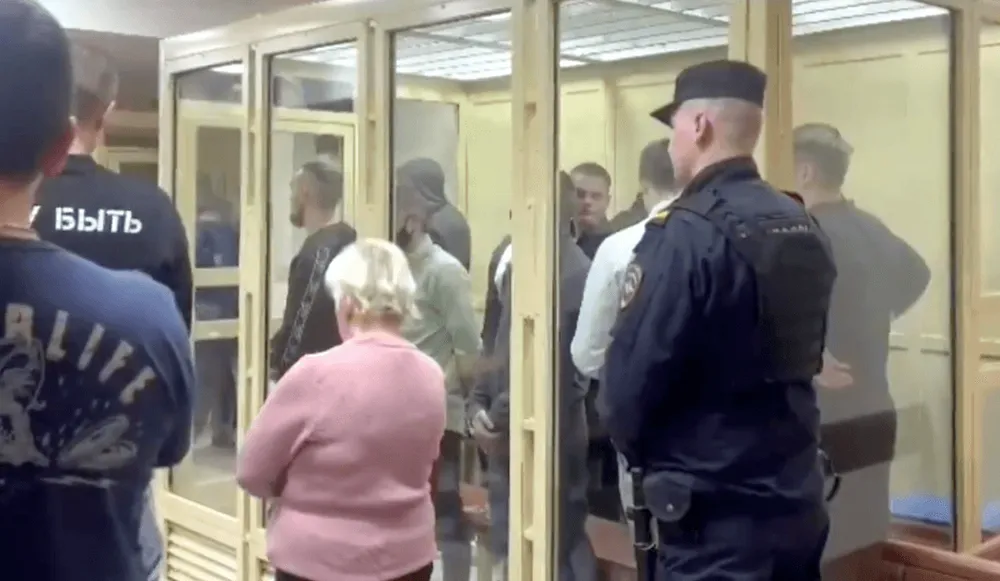Russia delivers historic life sentence to suspected founder of darknet marketplace
A Russian court has handed down an unprecedented life sentence to the suspected kingpin of the dismantled darknet drug marketplace Hydra. Fifteen of his accomplices were also sentenced, with punishments ranging from 8 to 23 years in maximum-security penal colonies.
The Moscow prosecutor's office announced the verdict on Monday but did not publicly link it to Hydra. The attribution was made by state-run news agencies TASS and Interfax, which, citing anonymous law enforcement sources, claimed the sentence was delivered to the platform’s alleged founder, Stanislav Moiseyev, and his co-conspirators.
They were found guilty of the illegal production and sale of drugs as part of an organized criminal group. The verdict is subject to appeal.
According to the Russian newspaper Kommersant, this is the first time a Russian court has imposed a life sentence for this type of crime. In addition to his prison term, Moiseyev was fined 4 million rubles ($37,500), while his accomplices were collectively fined a total of 16 million rubles ($150,000).
From 2015 to 2018, Hydra was one of the largest and most notorious darknet marketplaces, known for the trade of illegal goods and services, including drugs, stolen data, counterfeit currencies, and hacking tools. It operated primarily in Russian-speaking countries.
The marketplace was taken down in 2022 by international law enforcement after its servers, located in Germany, were seized. Hydra had about 17 million customers and more than 19,000 accounts selling a variety of things, according to German authorities. The sales on the platform amounted to at least $1.34 billion in 2020 alone.
Moscow prosecutors said that the members of the criminal gang were not only involved in drug trafficking but also in the manufacturing of narcotics. During a series of raids, law enforcement reportedly uncovered drug production labs set up within the suspects' homes. Authorities said they seized nearly one metric ton of narcotics and psychotropic substances, much of which was stored in vehicles with hidden compartments.
A court has ordered the confiscation of the criminals' vehicles, properties and land, all of which will be transferred to state ownership.
According to prosecutors, there were several dozen co-conspirators who knew each other only by their usernames. They communicated via messengers or websites that could only be accessed through the anonymous Tor network.
Hydra revolutionized the way drug deals were conducted and grew into a billion-dollar business complete with codes of conduct, customer support, and legal and medical services, said several security experts in an interview on Recorded Future News' Click Here podcast in 2022.
To deliver drugs to its clients, the platform provided coordinates that users could enter into their phones, along with discreet instructions detailing the exact locations — beneath specific trees, benches, or bins — where the sellers had hidden the narcotics.
Experts said the platform was highly decentralized. “The whole point is to isolate every bit of every stage of the supply chain. The customer doesn't know the kladman [drug distributor], who doesn't know their boss, and their boss doesn’t know their supplier,” said Niko Vorobyov, the Russian-born author of a book about the global drug trade.
After Hydra’s shutdown, researchers said revenues from darknet markets dropped from $2.6 billion in 2021 to $1.3 billion in 2022, with much of this decline attributed to Hydra.
The online drug trade, in Russia and globally, is still evolving, however. According to a recent report from the Global Initiative Against Transnational Organized Crime, drug traffickers continue to find ways to connect with buyers through darknet markets and cryptocurrency transactions.
Daryna Antoniuk
is a reporter for Recorded Future News based in Ukraine. She writes about cybersecurity startups, cyberattacks in Eastern Europe and the state of the cyberwar between Ukraine and Russia. She previously was a tech reporter for Forbes Ukraine. Her work has also been published at Sifted, The Kyiv Independent and The Kyiv Post.



